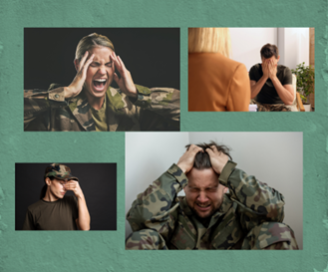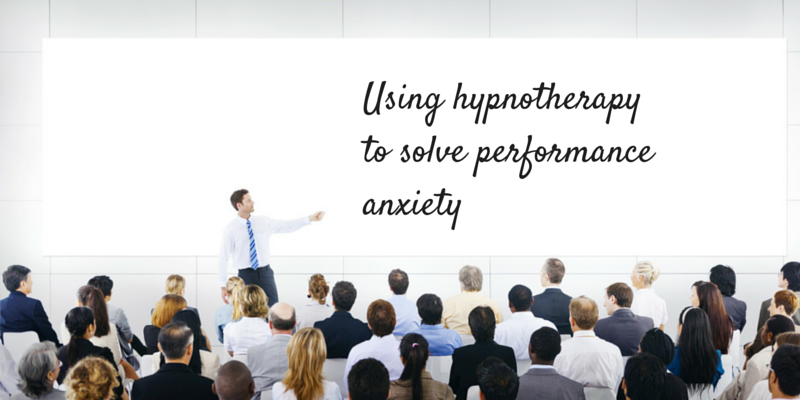Five Ways to Treat Depression with Hypnotherapy
Five Ways to Treat Depression with Hypnotherapy

Depression is often a reaction to a distressing or traumatic event. The people and situations who are associated with the traumatic event in our lives are referred to as traumatic triggers.
An example is someone reporting, “I never was depressed before my father (mother, child, spouse, best friend) died.” After a loved one passes on, the individual often has to deal with their belongings including their home, or now has to take on their responsibilities. Any of these can become traumatic triggers. If the person or family member who has lost the loved one does not have time to fully grieve the loss, and to process unfinished feelings about the person, depression may set in almost immediately. Other traumatic triggers include losing a job, divorce, or financial reversals such as bankruptcy or home foreclosure.
THE SIGNS AND SYMPTOMS OF DEPRESSION
The following are some of the typical signs of depression that may take over slowly like a fog rolling in on what was previously a sunny day and now is becoming darker with each minute.
- Symptom #1 – “Now, I can’t get out of bed in the morning. I just don’t have the same interest in things that I used to.”
- Symptom #2 – “I have body pains and I’m worried that I may have (fibromyalgia, cancer, arthritis, diabetes, etc.).”
- Symptom #3 – “I can’t seem to stop overeating and I gained 40 pounds.” Or “I have gone back to drinking, smoking cigarettes or pot, etc.”
- Symptom #4 – “I’m having trouble sleeping at night and I’m exhausted.”
- Symptom #5 – “I cry at the drop of a pin, but mostly I feel numb.”
Often these symptoms will be treated with drugs prescribed by a doctor. Anti-depressants, sleep medication, and perhaps a diet or stop smoking program will be prescribed. These treatment methods, of course, are aimed at symptom relief but don’t get down to treating the underlying cause of the depression.
 |
"Medication treats symptoms. Hypnotherapy treats causes."← Click the bird to post this on Twitter. |
If the depressed person goes to a counselor, they will talk about the feelings which may help for a while. Other therapists may try relaxation techniques combined with positive affirmations. There is a basic reason why these common responses to depression don’t really work: they do not address or resolve the deeper underlying causes of depression.
HOW DOES CLINICAL HYPNOTHERAPY TREAT DEPRESSION?
(Like this content? Click here to download our related guide: "The Ultimate Guide to Clinical Hypnotherapy Techniques" to learn more about the techniques employed to treat depressions, and dozens of other common issues.)
1. It helps you enter the subconscious:
First, we drop down from the conscious mind, which is only 10% of the mind into the subconscious mind. Now we are addressing the whole person, 100% of the mind rather than just treating the symptoms.
2. It helps you identify the "unfinished business".
People often have what Dr. Fritz Perls called “unfinished business” with whatever has been lost, be it a loved one, a job, or a home. These unresolved feelings, such as resentments, regrets, blame, anger, guilt, jealousy, and fear are stored in the body and must be released as soon after the triggering event as possible. Otherwise they become deeply buried beneath the numbness created by the anti-depressant drugs, the addictive behavior, and the concurrent repression that occurs when trauma and grief go untreated. Clinical hypnotherapy works for depression because it removes the underlying basis of depression and completes the unfinished business that otherwise continues to recycle as self-sabotaging thoughts and behaviors.
3. It helps you "finish" the "unfinished business" and release the stored emotions/experiences.
With hypnotherapy, we can go down to the deepest level of these traumatic experiences, memories and stored emotions to release them from the mind and body. When this hypnotherapy process is completed, the client reports that their depression has lifted, that they have stopped the compulsive thoughts or behavior, and that they are ready to resume living their lives again.
4. It helps you replace the trauma with positivity.
With each healing session of clinical hypnotherapy, we can replace the fearful repetitive thoughts that often haunt people following a traumatic experience. Positive affirmations now work because the underlying emotional release has been accomplished.
5. It helps you use the power of hypnotic suggestion to create long-term improvement.
Hypnotherapy provides an effective way to access the individual’s ability to affect the physical body. Once self-sabotaging thoughts and behaviors have been resolved, the individual can begin to use hypnotic suggestibility to improve the body’s functioning. Hypnotherapy can be very helpful in correcting patterns of restless sleep, low energy or libido, headaches or chronic pain. And one can use hypnotherapy to increase motivation to exercise and eat properly.
Conclusion
Consistent research and methodology refinement has allowed hypnotherapy to progress as an advanced form of therapy to the point where clinical hypnotherapy is now regularly considered as a treatment option for depression. Working in tandem with a group of powerful psychotherapy techniques, hypnotherapy can be a highly successful form of treatment for individuals with depression.
|
Are you a therapist who is looking to better treat your clients, get more treatment breakthroughs, grow your private practice, reach new clients, or continue your education? |








